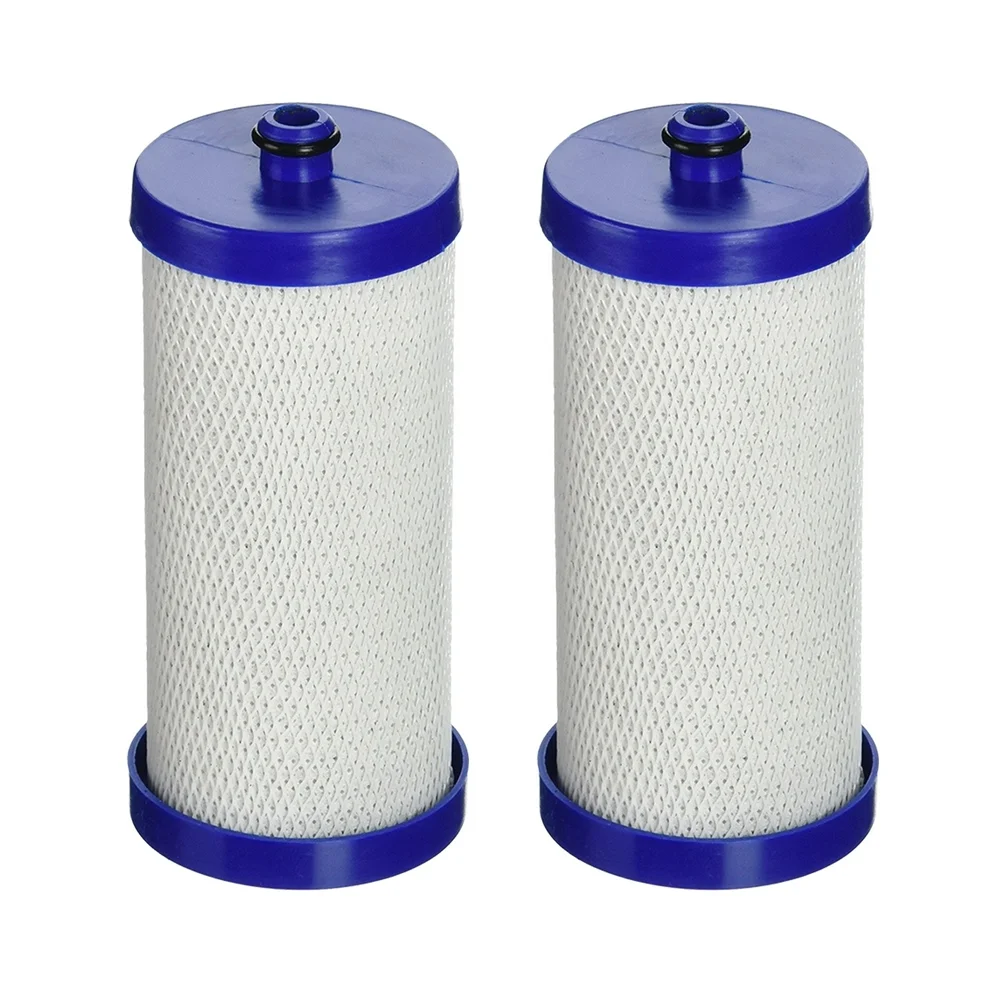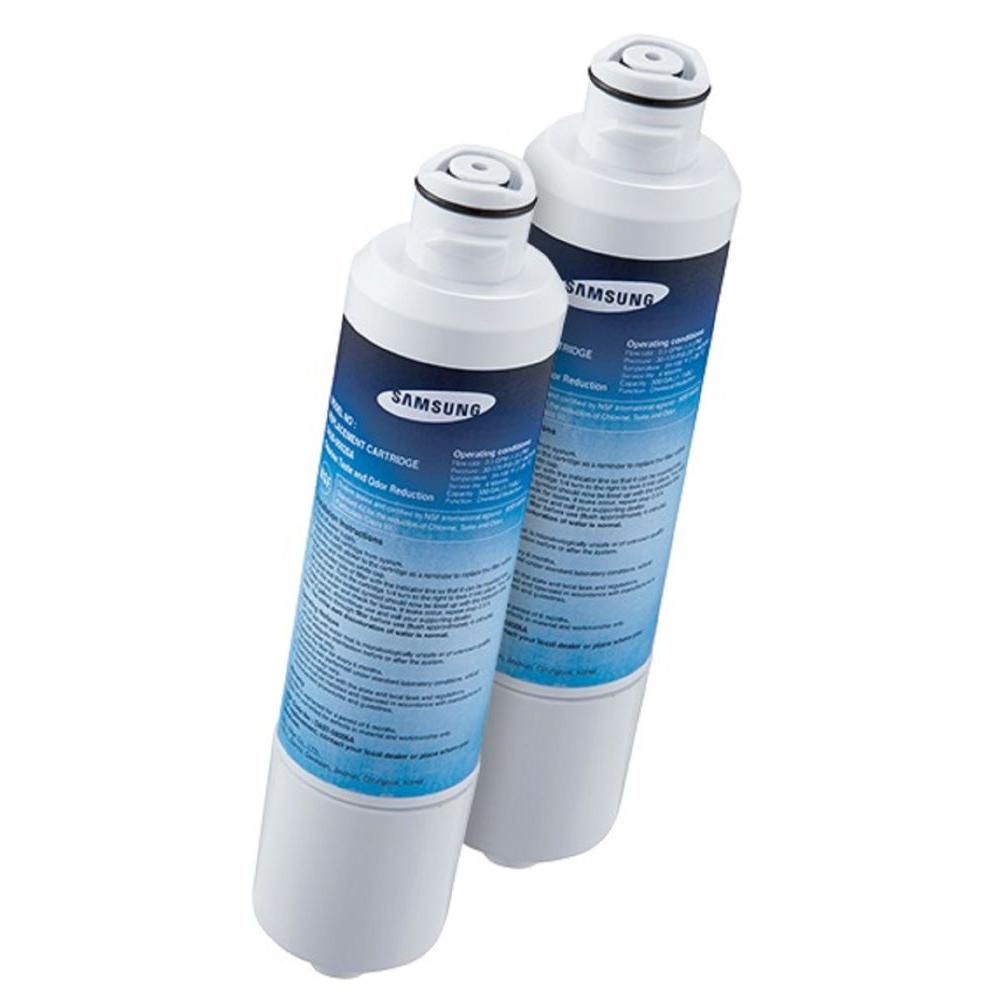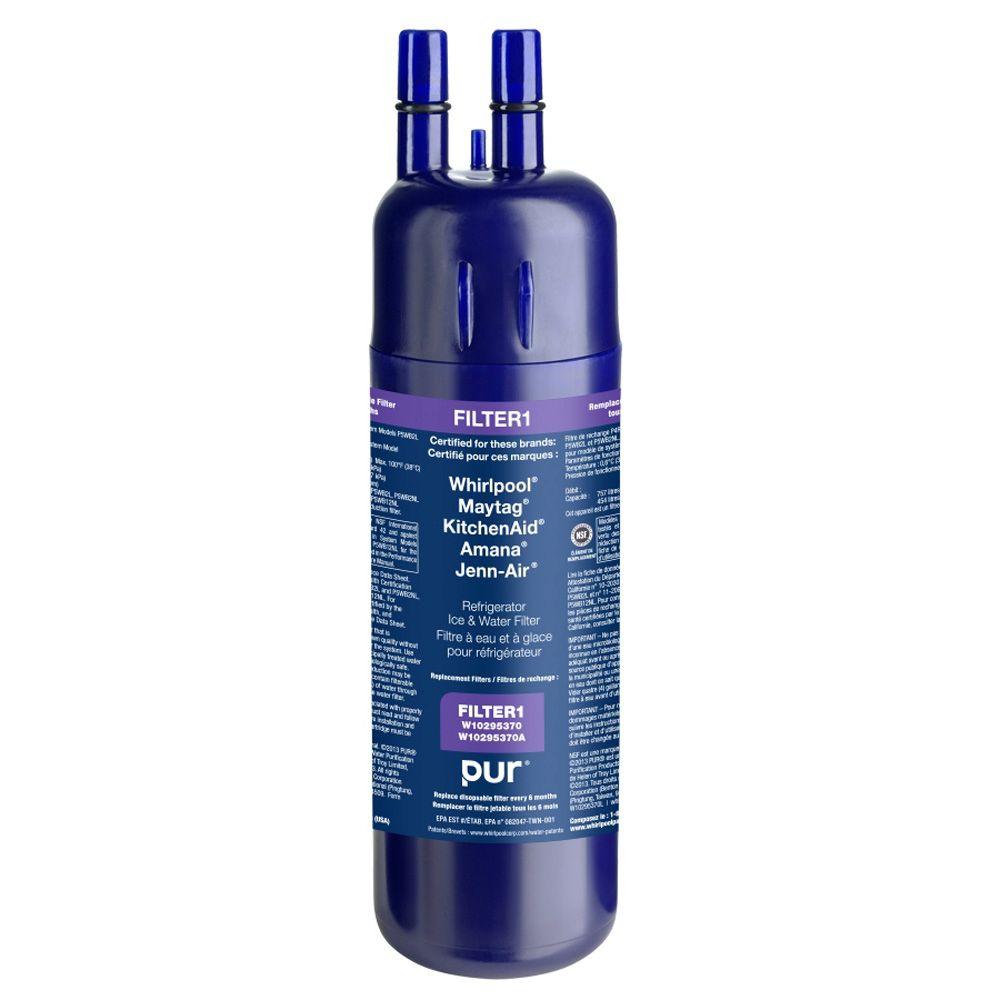Understanding Refrigerator Water Filters
How Refrigerator Water Filters Work
Refrigerator water filters use sediment and activated carbon to purify water. The sediment layer catches large particles. The carbon does more; it uses adsorption to trap contaminants like chlorine. Over time, the carbon fills up and can’t hold more. This means it’s time to switch out the filter.

What Contaminants Do Fridge Filters Remove?
Fridge filters target harmful substances. These include lead, chlorine, and volatile organic compounds (VOCs). Some also catch cysts and chloramine. But they are not perfect. Small particles might slip through. Even with these limits, filters are key for cleaner, better-tasting water. Thus, regular changes are important for continued effectiveness.
The Importance of Regular Filter Replacement
Benefits of Changing Your Water Filter Regularly
Regular fridge filter changes bring many benefits. First, they ensure your water tastes and smells fresh. No one likes a musty glass of water! Also, filter changes mean that significant levels of lead, chlorine, and other VOCs get removed. A new filter maximizes the trapping of these substances. This is critical if you want clean, safe water. Another plus is that regular changes can boost your appliance’s performance. You’ll avoid clogs, maintain water flow, and extend your fridge’s life. It’s a simple step that goes a long way for health and efficiency.
Potential Risks of Not Changing the Filter
The risks of not swapping out your filter are many. Overused filters can’t trap new contaminants. Instead, they may release trapped ones back into your water. This is due to carbon saturation or filter degradation. The result is water that is worse than unfiltered tap water. Moreover, a dirty filter becomes a breeding ground for bacteria. These can cause stomach upsets or more serious illnesses. Old filters also put a strain on your fridge. Water pressure can drop, and the ice maker might produce subpar ice. Clearly, skipping filter replacement has no benefits, only downfalls.
Signs That It’s Time to Change Your Water Filter
Knowing when to change your refrigerator water filter is key to maintaining water quality. Below are the signs to watch out for.
Indicator Lights and Manufacturer Recommendations
Most modern fridges come with an indicator light. This light turns on when it’s time to check your filter. Always read your fridge’s manual, too. It may provide a schedule for filter changes. Stick to these recommendations to ensure safe drinking water.
Changes in Water Taste and Appearance
Look for any change in your water. If it tastes odd or if ice looks cloudy, it’s time for a new filter. These changes can signal that contaminants are no longer being fully removed. A fresh filter can restore the clean taste and clear appearance of your water.
By staying alert to these signs, you can guarantee your fridge dispenses safe, refreshing water every day. If you notice any of these issues, act swiftly to replace your filter and avoid the risks associated with old filters.
 How to Replace Your Refrigerator Water Filter
How to Replace Your Refrigerator Water Filter
Replacing your refrigerator water filter is a straightforward process. It’s essential for maintaining water quality and your refrigerator’s performance. Below are steps to guide you through this simple but vital task.
Step-by-Step Guide to Changing Your Filter
- Locate the Filter: Find your water filter. It could be inside, at the bottom, or at the top of the fridge.
- Purchase the Correct Filter: Use your fridge’s manual to find the right model. Or use the model number found on your old filter.
- Remove the Old Filter: Turn the old filter to the left to unlock. Some models may have a button to release.
- Insert the New Filter: Take the new filter out of the box. Remove caps if present. Push it into place and turn to the right to lock.
- Flush the System: Run water through the dispenser for about 5 minutes. This clears out air and charcoal residue.
- Reset the Indicator: If your fridge has a filter indicator, reset it according to the manual.
- Check for Leaks: Once installed, check your new filter for any leaks.
Changing your water filter regularly ensures fresh-tasting, contaminant-free water. Remember to follow these steps every six months or when indicated.
Choosing the Right Water Filter for Your Fridge
When selecting a refrigerator water filter:
- Check Compatibility: Ensure the filter fits your fridge model. Use your manual or the fridge’s brand website.
- Decide on OEM or Aftermarket: OEM filters come from the fridge manufacturer. Aftermarket filters are compatible alternatives.
- Consider Filtration Needs: Think about what contaminants are in your water. Choose a filter that targets these specifically.
The right filter maintains the quality of your water and ice. It also helps your refrigerator work efficiently. When you’re ready to buy, consider your budget and filtration needs. Look for a filter with certifications, like NSF, to be sure it removes harmful contaminants. With care, you can make an informed choice for your home’s water quality.
Frequently Asked Questions About Fridge Filters
How Long Do Refrigerator Filters Last?
Refrigerator water filters should be replaced every 6 months for optimal performance. However, this can vary depending on your usage and your fridge model. It’s key to follow the manufacturer’s recommendations to ensure you’re always drinking clean water. If you often use your fridge’s water and ice dispenser, you might need to replace the filter more frequently. Always check the filter’s condition and replace it immediately if you notice any decline in water flow or quality.
Can Fridge Filters Impact Water Quality Over Time?
Yes, fridge filters can impact water quality if they are not replaced regularly. An old or clogged filter may not effectively remove contaminants. This could lead to water that is even worse than tap water. A saturated filter can release trapped contaminants back into the water. It can also become a breeding ground for bacteria. These issues highlight the importance of timely filter changes. Always ensure that your water filter is in good condition to maintain high-quality, clean, and safe drinking water.
 Where to Buy Replacement Filters
Where to Buy Replacement Filters
When it’s time for a new fridge water filter, you have options. You can find filters at home improvement stores, appliance shops, or online.
OEM vs Aftermarket Water Filters
OEM filters are made by the fridge’s manufacturer. They promise a perfect fit and reliable quality. But, they often cost more. Aftermarket filters may be cheaper. They fit various fridge models. But, make sure they have proper certifications. Brands like Aqua Fresh, Glacier Fresh, and Waterdrop offer quality options. Check each filter’s features against your fridge model. Always consider water quality needs when picking a filter.
Conclusion
In summary, knowing how often to change your refrigerator water filter is crucial for maintaining not only the health and safety of your drinking water but also the performance of your appliance. By adhering to recommended guidelines, keeping an eye on water quality, and performing regular maintenance, you can ensure clean, safe water for you and your family. Remember that while six months is a general rule of thumb, factors such as water usage, family size, and local water quality play significant roles in determining the actual frequency for changing your filter. Regular maintenance not only enhances your drinking experience but is also cost-effective, helping you avoid unnecessary issues down the line. In keeping your water filter fresh and functional, you’re investing in your health and the longevity of your refrigerator.
